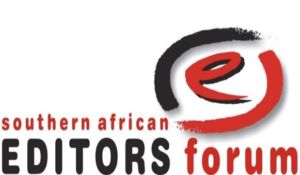Media Coalition Welcomes Botswana Government’s Amendments to New Bill

The coalition of Southern African journalism organisations in Gaborone this week, led by the Botswana Editors’ Forum (BEF), to investigate the country’s controversial new Criminal Procedure and Evidence Bill has welcomed the Botswana government’s amendments to the Bill.
The government released amendments which reinstated judicial oversight over surveillance, interceptions and seizures. It also criminalized the abuse of these powers and introduced a new committee, headed by a judge and with extensive powers, that will oversee undercover investigations.
The coalition of organisations representing journalists across the SADC region gathered in Gaborone at the invitation of BEF. It came in response to the government’s plan to push through parliament a law that would have threatened the work of journalists and the country’s media freedom and free expression.
The coalition was led by the BEF and included the Press Council of Botswana, MISA Botswana, the Southern African Editors’ Forum (Saef), the Media Institute of Southern Africa, the Campaign for Free Expression (CFE) and the WAN-Ifra Media Freedom Committee. This group asked to meet the President and other government officials to discuss their objections to the Bill.
It was a strong show of solidarity that highlighted the concern with a draft law that African Editors Forum chair Jovial Rantao called “draconian”.
The government’s latest amendments to the Bill removed clauses that would allow authorities to surveil citizens and conduct undercover operations without a warrant for up to 14 days. It went further and criminalized the abuse of these powers, with penalties up to life imprisonment. The new Controlled Investigations Coordination Committee will coordinate such investigations and also “protect the interests of interception subjects and targets”. The committee will be headed by a judge and has strong powers to “impose administrative sanctions, award compensation, issue and follow up enforcement procedures”. Its decisions will have “the same effects as a judgement of the court”.
“In our view, this is not a perfect Bill, but we are prepared to live with it as part of a trade-off that citizens make in a democratic society to help the state fight modern-day crimes like financial terrorism and money-laundering,” said Spencer Mogapi of BEF.
“I want to thank media colleagues from the region and abroad who came to show solidarity with us in Botswana at a time when we felt that the future was all dark,” he said.
“We appreciate that the government heard the concerns and quickly made changes to improve the Bill. It is a very positive sign when governments respond in this way.
“From a Bill that threatened media freedom, Botswana now has one that regulates covert investigations. It is not perfect, but – if implemented properly – can have positive effects, said Anton Harber, of (CFE).
Joseph Ailonga of SAEF said: “We welcome these amendments and would want to encourage our colleagues in Botswana to now focus on the implementation of this bill once passed.”
Tabani Moyo, MISA regional director, said: “We welcome the government’s decision to water down the bill, although needs to be done to balance citizens’ right to privacy and national security. We will continue to engage with the government and citizens to ensure that rights are protected.”
Contacts:
- Anton Harber, Campaign for Free Expression +27-83-3039497 [email protected]
- Spencer Mogapi, Botswana Editors’ Forum +267 72110101
- Joseph Ailonga, Southern African Editors’ Forum +264 85-2717853
- Tabani Moyo, Misa [email protected]
Socials
Twitter: @SAEditorsForum
Email: [email protected]
Website: SANEF





